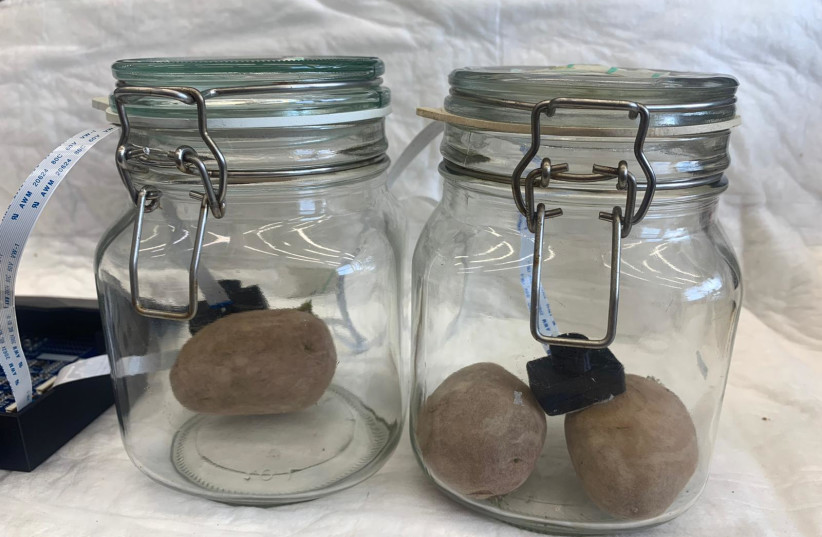Potatoes are an extremely popular vegetable among Israelis, and the tubers are among Israel’s chief export industries – 700,000 tons a year. But despite advances in increased food production, half of the world’s harvested food, including much of Israeli produce, is lost due to rot caused by microorganisms.
Plants release various volatile organic compounds into their surrounding environment, which can be monitored for early detection of plant disease and to prevent food loss.
A new research study led by the Hebrew University of Jerusalem (HU) and the Agricultural Research Organization (ARO, also known as the Volcani Institute) in Beit Dagan presents the success of a biological sensor for early detection of hidden disease caused by Pectobacterium in potato tubers.
What is the research?
Israeli farmers import potatoes from Europe for planting here, but a certain percentage of them carry disease inside them, either visible or invisible, that cause rot and significantly reduce the potato’s quality.

The HU-Volcani collaboration is about to change that. They have developed a sensor that detects disease and can be used to inhibit the rot from growing and spreading. Their study will be published in the upcoming edition of Talanta, a peer-reviewed scientific journal, under the title “Whole-cell bacterial biosensor for volatile detection from Pectobacterium-infected potatoes enables early identification of potato tuber soft rot disease.”
The study was conducted by Dr. Dorin Harpaz and her doctoral student Boris Veltman at HU’s Faculty of Agriculture, Food and Environment, under the supervision of Dr. Evgeni Eltzov of the Volcani Institute. The team collaborated with Volcani’s Dr. Sarit Melamed and Dr. Zipora Tietel, as well as Dr. Leah Tsror from the Gilat Research Center.
The sensor relies on smart bioengineering and optics. When the sensor is exposed to an infected potato, a bacterial compound within it lights up, and the strength of the luminescence indicates the concentration and composition of the rot.
“The intensity of the light given off by the bacteria panel makes it possible to quickly and quantifiably analyze the characteristics of the disease that the sensor can ‘smell’ before the appearance of visible symptoms,” Eltzov said.
According to Harpaz, “The biosensor we developed will help identify diseased potatoes that do not yet have any external signs and keep them away from healthy tubers, thus preventing the rot from developing or spreading to other healthy plants.”
To form the bacteria panel, the team created a compound of four genetically engineered bacteria that measure biological toxicity. In this study, the biological sensor detected disease before there was any visible trace and caused the optical sensor to shine twice as brightly as did the sensors in non-infected potatoes. Their capabilities were also shown in a previous study, which used the sensors to detect toxicity among artificial sweeteners in sports supplements.
According to the researchers, early discovery of disease before the potatoes are exported to foreign markets or replanted offers a significant advantage to food growers.
“The biological sensor can be used to quickly and economically identify hidden rot in potatoes, facilitate better post-harvest management and reduce food wastage, which is very important given the current global food crisis,” Harpaz said.
